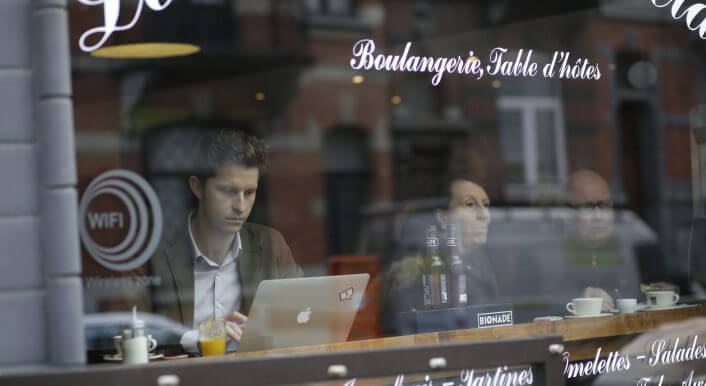Why we are publishing secret TTIP documents
TTIP has been negotiated in secret so far. We think this is unworthy for a democracy. This is why we decided to grant public access to internal documents - just in time for the tenth round of negotiations starting Monday in Brussels.

At the moment, it is primarily the opponents who are interested in TTIP. That is a mistake. Because if this free trade agreement is implemented, it will affect 820 million people in the European Union and the United States.
But isn’t free trade an issue of the past? Haven’t nearly all customs duties been abolished? Correct. For that reason, negotiations for the Transatlantic Trade and Investment Partnership (TTIP) now revolve around regulations, product standards and the controversial issue of investment protection. For example, whether indicators on cars should blink orange (Europe) or red (USA). Whether genetically modified foods should have to be labelled. Or whether an energy company like Vattenfall can sue a sovereign state such as Germany for compensation if the government decides to phase out nuclear power.
At the end of the day, TTIP affects us all. This makes it all the more disturbing that a caste of bureaucrats would like to negotiate everything in secret and then present the parliaments as well as the public with a finished treaty at the very end. Take it or leave it.
As a news organization, we reject this secrecy that leads to fear and uncertainty. In our view, greater transparency will lead to a better debate on the treaty. For that reason, we are today publishing numerous internal documents on our website: www.correctiv.org/ttip. These include reports from meetings between the EU Commission and government representatives from Germany, France and other EU states. They also include documents from the EU Commission which were taken into negotiations with US representatives. And papers in which the member states communicated their positions on individual issues to the EU.
In the first stage, we are today publishing around 100 such documents. They reveal how negotiations with the USA are coming along and where there are conflicts. The transcripts are relatively easy to read and convey the mood during the individual negotiation rounds. For example, they show how Greece adamantly wants to prevent debt haircuts from leading to cases in front of investment tribunals. Or that France wants to let TTIP fail if certain types of cheese are not protected. But the transcripts also show how dissatisfied European governments are because EU authorities give them too little insight into negotiations. This leads to the fear that the issues which are important to the countries will end up falling out of the negotiations. Follow our reports on specific topics.
The other types of documents (EU documents and position papers) are more technical in nature. They revolve around concrete proposals which are brought into the negotiations. Is it unfair that the secret documents we are publishing are only from the EU? So far, US documents have not been leaked. But we would be happy if there was also information from the perspective of US negotiators.
We have redacted some parts of the documents. Why? We redacted personal data, email addresses and mailing list names. We do not want to personally call out or attack individual negotiators.
On Monday 13th July, a new round of negotiations is beginning in Brussels that will last the entire week. Our TTIP reporter Justus von Daniels (justus.von.daniels@correctiv.org) will be on the ground in Brussels and will provide regular updates in a live blog. Our TTIP team Marta Orosz (marta.orosz@correctiv.org) and Justus von Daniels will follow the negotiations with reports. Get the latest updates by following us on Twitter: @ttip_correctiv
We are already preparing the next larger package of hitherto secret documents for publication. And we would be happy if CORRECTIV made you feel well informed. Send your feedback to: ttip@correctiv.org



